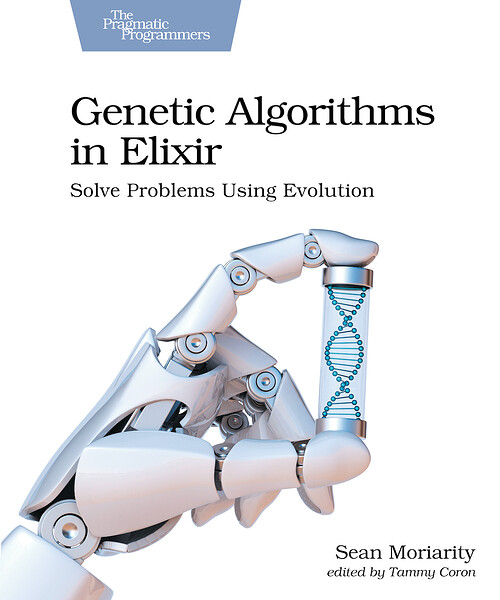Sean Moriarity @seanmor5
edited by Tammy Coron @Paradox927
From finance to artificial intelligence, genetic algorithms are a powerful tool with a wide array of applications. But you don’t need an exotic new language or framework to get started; you can learn about genetic algorithms in a language you’re already familiar with. Join us for an in-depth look at the algorithms, techniques, and methods that go into writing a genetic algorithm. From introductory problems to real-world applications, you’ll learn the underlying principles of problem solving using genetic algorithms.
Evolutionary algorithms are a unique and often overlooked subset of machine learning and artificial intelligence. Because of this, most of the available resources are outdated or too academic in nature, and none of them are made with Elixir programmers in mind.
Start from the ground up with genetic algorithms in a language you are familiar with. Discover the power of genetic algorithms through simple solutions to challenging problems. Use Elixir features to write genetic algorithms that are concise and idiomatic. Learn the complete life cycle of solving a problem using genetic algorithms. Understand the different techniques and fine-tuning required to solve a wide array of problems. Plan, test, analyze, and visualize your genetic algorithms with real-world applications.
Open your eyes to a unique and powerful field—without having to learn a new language or framework.
Sean Moriarity graduated from the United States Military Academy with a degree in Computer Science. Sean was first introduced to genetic algorithms while on a summer internship which inspired him to write Genex, a library for writing evolutionary algorithms in Elixir. Many of the problems and solutions you’ll encounter in this book were inspired from the lessons learned while developing Genex. Sean’s passions include functional programming, artificial intelligence, mathematics, and, of course, evolutionary algorithms.
- Full details: Genetic Algorithms in Elixir: Solve Problems Using Evolution by Sean Moriarity
- View this book’s portal and details on how to post errata and suggestions here.
Don’t forget you can get 35% off with your Devtalk discount! Just use the coupon code “devtalk.com" at checkout ![]()


 )
)